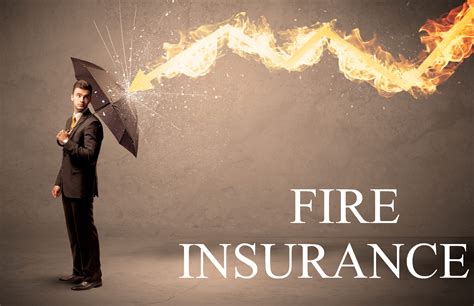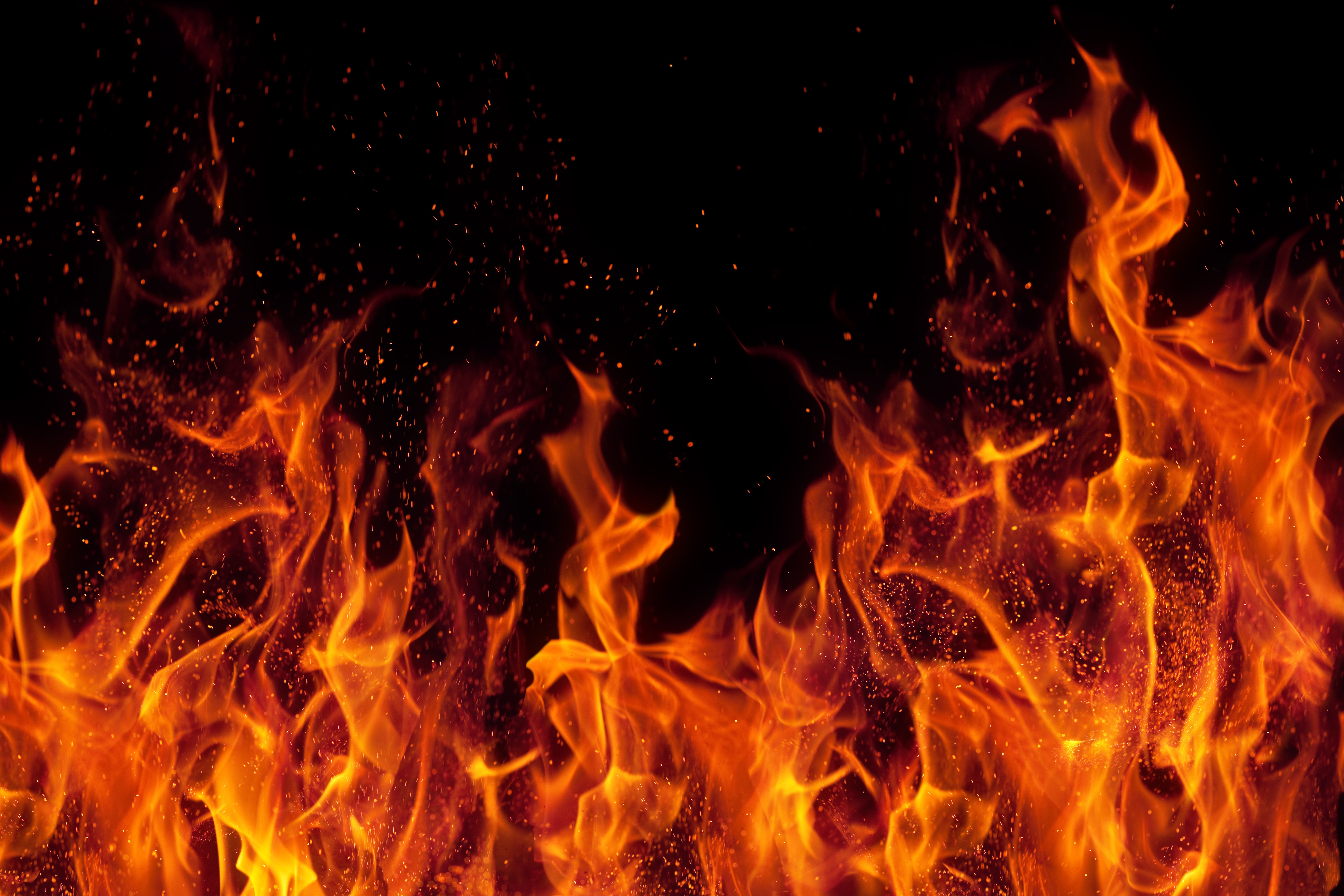Fire Insurance

Fire insurance is a crucial aspect of safeguarding personal and commercial properties against the devastating effects of fires. With the potential for fires to cause extensive damage and financial ruin, it is essential to understand the significance and intricacies of fire insurance policies. This comprehensive guide aims to delve into the world of fire insurance, exploring its history, coverage options, and the benefits it provides to individuals and businesses alike.
A Historical Perspective on Fire Insurance

The concept of fire insurance has its roots in ancient times, with evidence of fire-related risk mitigation practices dating back to ancient civilizations. However, the modern fire insurance industry as we know it today emerged during the 17th century in England. The Great Fire of London in 1666, which ravaged the city for several days, served as a catalyst for the development of organized fire insurance schemes.
One of the earliest fire insurance companies, The Fire Office, was established in London in 1680 by Nicholas Barbon. This pioneering venture offered policies to cover the cost of rebuilding homes and businesses in the event of a fire. Over time, the industry evolved, and fire insurance became a vital component of the global insurance market, protecting properties and assets against the unpredictable nature of fires.
Understanding Fire Insurance Coverage

Fire insurance policies are designed to provide financial protection against losses resulting from fire-related incidents. These policies typically cover a wide range of fire-related damages, including structural damage to buildings, damage to personal belongings and inventory, and the costs associated with temporary relocation or business interruption.
The coverage provided by fire insurance policies can vary depending on the specific policy and the insurer. Some common types of coverage include:
- Building Coverage: This type of coverage protects the physical structure of a building, including its walls, roof, and foundation. It covers the cost of repairing or rebuilding the building in the event of fire damage.
- Contents Coverage: Contents coverage safeguards the personal belongings and inventory within a property. It covers the replacement or repair of items such as furniture, electronics, clothing, and business equipment damaged by fire.
- Liability Coverage: Liability coverage protects policyholders from legal claims arising from fire-related incidents. This coverage can be crucial for businesses, as it provides financial protection against lawsuits and compensation claims.
- Business Interruption Coverage: Specifically designed for businesses, this coverage helps compensate for lost income and additional expenses incurred due to a fire. It can cover revenue losses, temporary relocation costs, and other associated expenses during the recovery period.
- Extended Coverage: Some fire insurance policies offer extended coverage options, which may include protection against other perils such as lightning strikes, explosions, or even vandalism. These additional coverages provide comprehensive protection for properties and their contents.
Assessing the Benefits of Fire Insurance
Fire insurance offers a multitude of benefits to both homeowners and business owners. Here are some key advantages:
Financial Protection and Peace of Mind
The primary benefit of fire insurance is the financial protection it provides. In the event of a fire, the policy ensures that policyholders are not left with overwhelming financial burdens. Fire insurance helps cover the costs of rebuilding, repairing, and replacing damaged property, providing peace of mind during a challenging time.
Swift Recovery and Rebuilding
With fire insurance in place, the process of recovering from a fire can be significantly expedited. Insurers work closely with policyholders to assess the damage, determine the necessary repairs or rebuilding, and provide financial support to get the property back to its pre-loss condition as quickly as possible.
Protection Against Legal Liabilities
For businesses, fire insurance with liability coverage is especially crucial. In the event of a fire-related incident, businesses may face legal claims from customers, employees, or other affected parties. Fire insurance with liability coverage provides a safety net, ensuring that the business is protected against potential financial losses resulting from such claims.
Enhanced Property Value
Having fire insurance can increase the overall value and marketability of a property. Prospective buyers or tenants often prefer properties that are adequately insured, as it demonstrates a commitment to protection and provides an added layer of security.
| Insurance Type | Average Premium |
|---|---|
| Homeowner's Fire Insurance | $350 - $1,000 annually |
| Commercial Fire Insurance (Small Business) | $500 - $2,000 annually |
| Commercial Fire Insurance (Large Enterprise) | Varies based on coverage and risk assessment |

Choosing the Right Fire Insurance Policy
When selecting a fire insurance policy, it is crucial to consider various factors to ensure adequate coverage and protection. Here are some key considerations:
Assess Your Needs
Evaluate your specific requirements and the potential risks associated with your property. Consider the value of your home or business, the cost of rebuilding or repairing, and the replacement value of your belongings. Understanding your needs will help you choose the appropriate coverage limits and policy options.
Compare Different Insurers
Research and compare multiple insurance providers to find the best fit for your needs. Look for insurers with a strong reputation, financial stability, and positive customer reviews. Compare their coverage options, deductibles, and any additional benefits or perks they offer.
Understand the Policy Terms
Read and understand the terms and conditions of the policy carefully. Pay attention to the exclusions, limitations, and any specific requirements or obligations outlined in the policy. Ensure that you are aware of the steps to take in the event of a fire, including the claims process and any necessary documentation.
Consider Additional Coverages
Evaluate the potential need for additional coverages beyond basic fire insurance. For instance, if you reside in an area prone to natural disasters like earthquakes or hurricanes, you may want to consider adding extended coverage options to your policy. Additionally, consider the value of your belongings and whether you require personal property coverage beyond what is provided in the standard policy.
Review and Update Regularly
Fire insurance policies should be reviewed and updated periodically to ensure they remain adequate as your circumstances change. Factors such as renovations, expansions, or changes in personal belongings may impact the value of your property and the coverage required. Regular reviews help ensure that your policy aligns with your current needs and provides sufficient protection.
The Future of Fire Insurance

As technology advances and the insurance industry continues to evolve, the future of fire insurance holds exciting possibilities. The integration of smart home technologies and advanced fire detection systems offers the potential for more precise risk assessment and improved loss prevention measures.
Additionally, the development of data-driven analytics and machine learning algorithms can enhance the accuracy of fire risk predictions. Insurers may utilize this technology to offer more tailored and cost-effective policies, taking into account individual risk factors and providing personalized coverage options.
Furthermore, the concept of shared economy and community-based insurance models may gain traction in the future. These innovative approaches could enable policyholders to collectively share the risk and benefits of fire insurance, potentially reducing costs and fostering a sense of community resilience.
What should I do in the event of a fire at my property?
+In the unfortunate event of a fire, the first priority is to ensure the safety of all occupants and individuals in the vicinity. Evacuate the property immediately and call the emergency services (e.g., fire department) to report the fire. Once the situation is under control and safe to do so, contact your insurance provider to initiate the claims process. They will guide you through the necessary steps and documentation required to file a claim.
How often should I review and update my fire insurance policy?
+It is recommended to review your fire insurance policy annually or whenever there are significant changes to your property or personal circumstances. Regular reviews ensure that your coverage remains adequate and aligned with your current needs. Additionally, it allows you to take advantage of any policy enhancements or discounts offered by your insurer.
Can I combine fire insurance with other types of insurance coverage?
+Yes, fire insurance can often be combined with other types of insurance coverage, such as homeowner’s insurance, business insurance, or property insurance. Bundling your insurance policies with a single provider may result in cost savings and simplified management. However, it is essential to carefully review the combined policy to ensure that all your desired coverages are included and adequately addressed.



